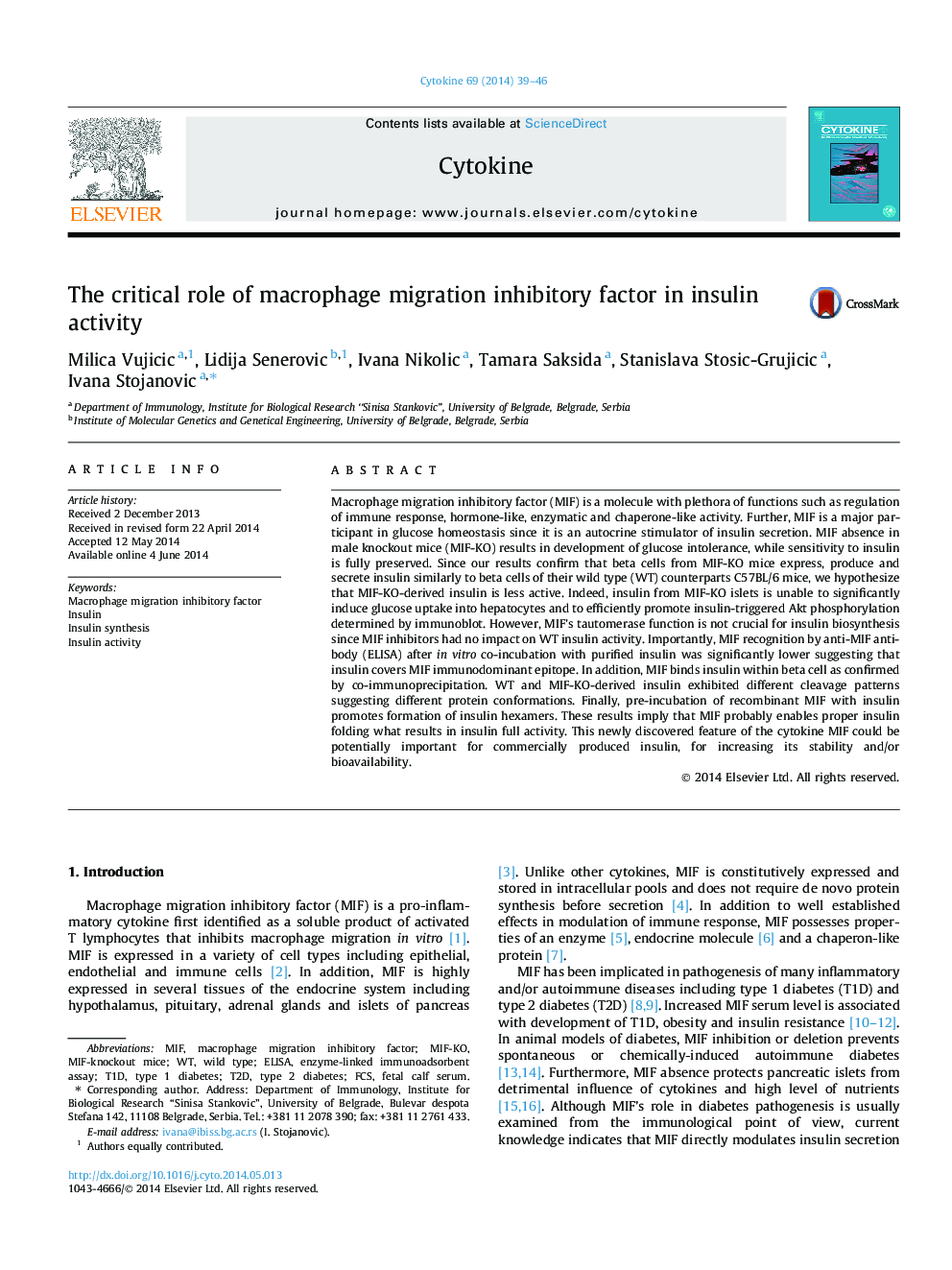| Article ID | Journal | Published Year | Pages | File Type |
|---|---|---|---|---|
| 5897111 | Cytokine | 2014 | 8 Pages |
â¢MIF absence provokes glucose intolerance in mice.â¢MIF absence reduces insulin-driven glucose uptake into hepatocytes.â¢MIF binds insulin in vivo and in vitro.â¢MIF alters insulin's susceptibility to proteolysis.
Macrophage migration inhibitory factor (MIF) is a molecule with plethora of functions such as regulation of immune response, hormone-like, enzymatic and chaperone-like activity. Further, MIF is a major participant in glucose homeostasis since it is an autocrine stimulator of insulin secretion. MIF absence in male knockout mice (MIF-KO) results in development of glucose intolerance, while sensitivity to insulin is fully preserved. Since our results confirm that beta cells from MIF-KO mice express, produce and secrete insulin similarly to beta cells of their wild type (WT) counterparts C57BL/6 mice, we hypothesize that MIF-KO-derived insulin is less active. Indeed, insulin from MIF-KO islets is unable to significantly induce glucose uptake into hepatocytes and to efficiently promote insulin-triggered Akt phosphorylation determined by immunoblot. However, MIF's tautomerase function is not crucial for insulin biosynthesis since MIF inhibitors had no impact on WT insulin activity. Importantly, MIF recognition by anti-MIF antibody (ELISA) after in vitro co-incubation with purified insulin was significantly lower suggesting that insulin covers MIF immunodominant epitope. In addition, MIF binds insulin within beta cell as confirmed by co-immunoprecipitation. WT and MIF-KO-derived insulin exhibited different cleavage patterns suggesting different protein conformations. Finally, pre-incubation of recombinant MIF with insulin promotes formation of insulin hexamers. These results imply that MIF probably enables proper insulin folding what results in insulin full activity. This newly discovered feature of the cytokine MIF could be potentially important for commercially produced insulin, for increasing its stability and/or bioavailability.
